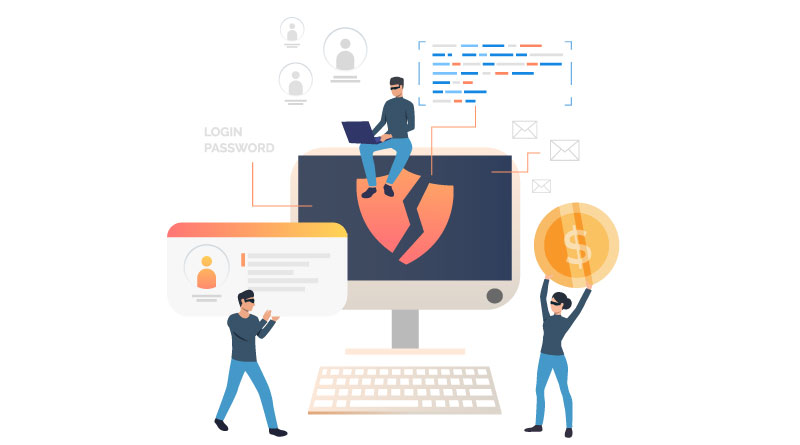Cybercrimes are always buzzing around with dangerous effects on various aspects. Impersonating someone is a deadly form of online crime that has hazardous effects similar to hacking. Impersonating someone is to play, act or pretend to be someone else using someone’s actual identity. It is not exactly hacking or breaking into your account; it covers an entire plan to set up a completely different account similar to your name with your existing display picture. Why would someone want to be you? There is a greater risk involved than you think!
What should you do when someone tries to impersonate you online? Let’s have a closer insight!
How Can Someone Impersonate You?
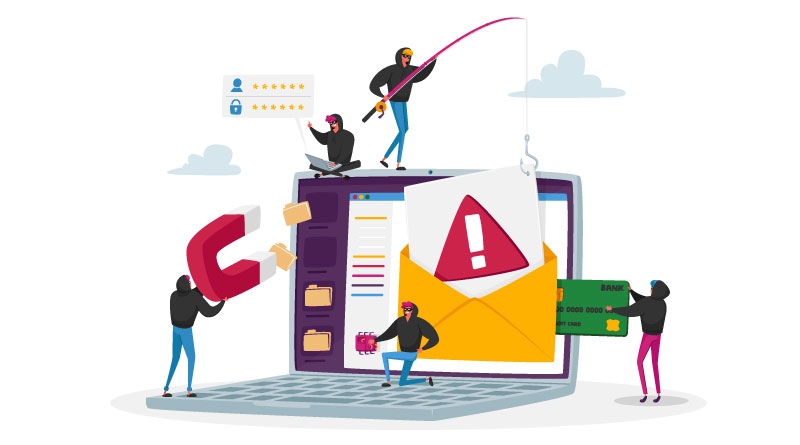
The entire goal behind impersonating someone is desire and greed. There are many ways where the masked guy can impersonate you for all the negative reasons like gaining a monetary benefit or harming the reputation of your organization or involving you in some cyberbullying/crimes. They can take place in ways broadly as:
- Social media Impersonation.
- Masking a website as you own.
There are other ways too including counterfeiting, phishing, fake news, etc. The people who are involved in such activities are dangerous and can do a lot of harm to your online identity.
Related: Online reputation management in times of increased cyberbullying and cyber offenses
Social Media Impersonation
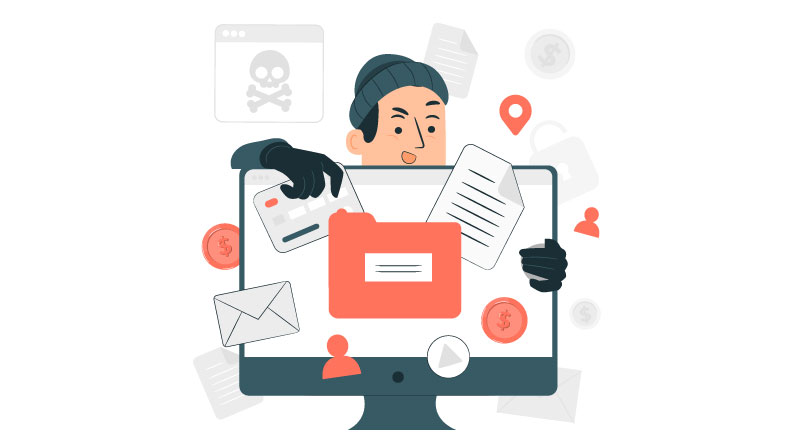
Have you seen that a film actor has several accounts under his name with the same display picture on social media platforms? Thanks to the feature of “blue tick” or verification mark that allows us to differentiate between the real and the impersonated one on Instagram and Facebook. Even then, many people fail to recognize and differentiate between the two accounts due to a lack of awareness. And what happens when someone not of “blue tick” is being impersonated?
It doesn’t mean someone hacked or took control of your account. It is the making of the look-alike account, stealing information from the real account while re-posting your pictures, stories, events, and whereabouts.
Here are some steps you can take for protecting yourself from an impersonator:
Report the account
There are options in every social media platform to report a fake account. You can report the account that is impersonating you or you can report it on behalf of someone else. There is a simple process on every social media website for reporting fraud, do that and wait for your report to be approved.
Post about the fraud
While you wait after reporting, the best thing you can do is to post about it to your friends and followers through your real account. Ask them to report the account and re-post your request. Make sure that they don’t fall for the trap.
Report all thefts and libel content
Gather all the information of recent libels or thefts that you know about. Ask your friends and followers to report any kind of monetary losses they suffered because of your fake account. Contact the customer support on the social media platform. Reach out to the banks for reporting the bank details and receipts of the money lost if you have them. Sometimes they can flag the recipient’s accounts or reverse the transactions.
Don’t fall for emotional stories
The impersonator may ask for money to delete your account or might trap you by telling a sad story that can make you guilty enough to make you help him. The professional fraudsters generally shine on executing strategies to finally make you feel pity for them and brush off their crimes. They are most commonly repeat offenders. Be careful not to get drawn towards their emotional traps.
Related: What should be your social media strategy for the new normal times?
Website Impersonation
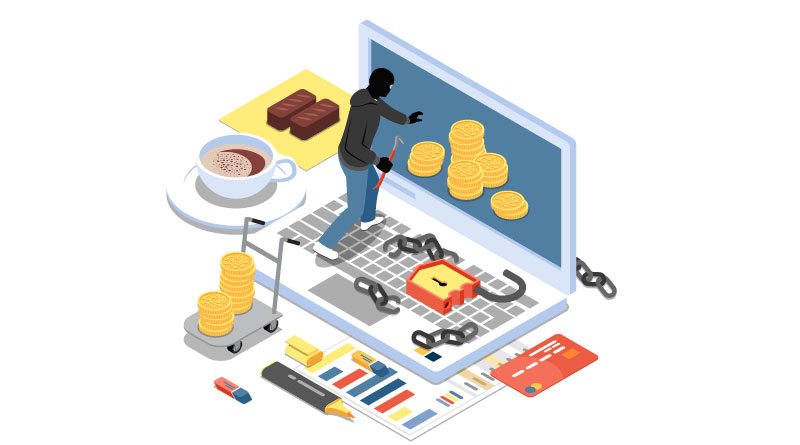
Websites are cloned for several outrageous and sinful reasons. This is done because of competition, personal grudges, to take advantage, or to defame. Whatever may be the evil intention behind this, the consequences might be dreadful to you and your reputation. The fraudsters may steal your logo, designs, and even the intellectual properties of your original website. They can also create similar websites with a slight difference in logo and designs with similar products and services to take down your business.
While these dramas will be inescapable, word-to-word mimicking of your website may require you to take some steps to take them down.
Send a “cease and desist” letter to the masked person
There are various templates available online for this letter. This is a message sent to the fraudster to warn him and ask him to stop the activity that he is doing and the legal risk involved in it.
Report the website to the respective web host
Certain tools help detect the web hosting provider of a particular website. Report them about the fraud and ask them to run an investigation against the website.
There are various other ways to deal with such kinds of situations. Many legal firms can handle frauds with professional skills but they are not very well recommended.
Related: How to perform an online vulnerability assessment of your website? Why is it important?
This Is Not The End!
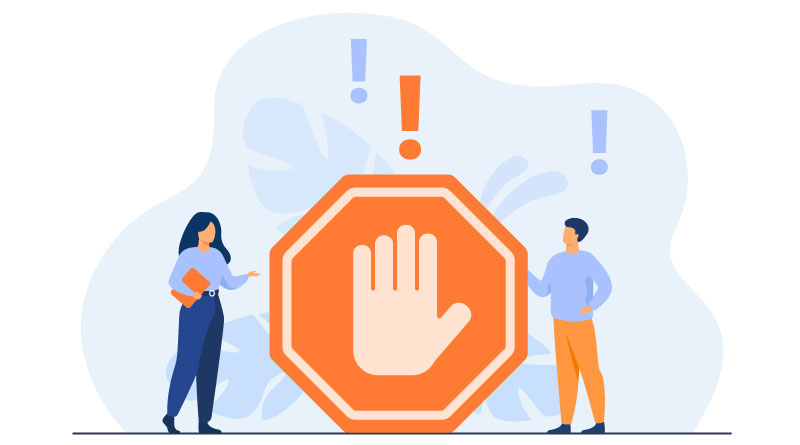
The Internet surely is a boon for mankind, yet, is a warehouse of fraudsters and loopholes. There are many fishy tricks out there that resemble and are associated with impersonation. When there is a hefty amount of money, a large chunk of shares, crypto, power, and influence is involved, there will be fraudsters waiting to siphon money or compromise data. Some popular cybercrimes include:
Phishing
The scammer impersonates a brand or one of its employees to seek out personal and sensitive customer details like pins and passwords, security numbers, and bank details. This not only does harm to the image of the brand itself, but it also sometimes causes huge financial losses to the customers and potential buyers. There are cases of phishing that involve some of the greatest scams in history.
Counterfeiting
Some certain pages and accounts are exclusively made to sell fake and inappropriate products to the potential consumers of the big brands. These frauds occur mostly in the beauty, fashion, and luxury industries. They set up big advertising campaigns attracting the target audience of the big and reputed brands and selling them adulterated and look-alike products at a cheaper price.
Related: Ways to protect yourself from the rising rate of cybercrimes amidst the pandemic
Impersonation Vs. Fan page
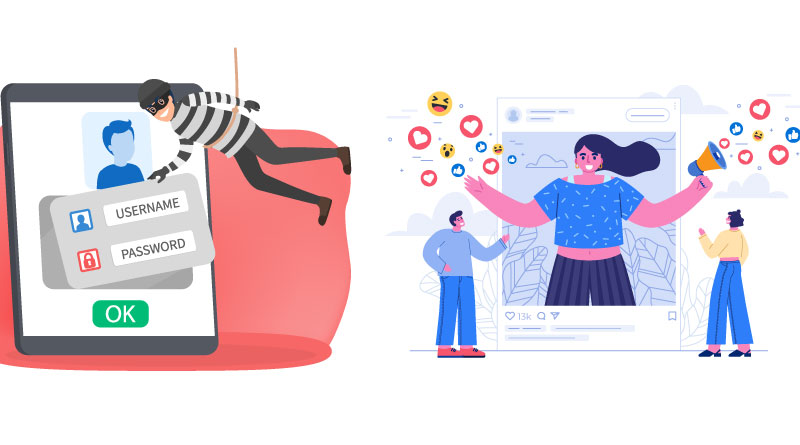
It is not uncommon to see around several pages documenting a politician, actor, influencer, or news channel. But there is a clear thread separating a fan page from a fake account. A fan page is exclusively a community for the fans to show their love for the person. It is not illegal to form a fan page until the admin asks for money and favors impersonating someone or tries to defame using false claims, events, and fake news. It is quite luring to take a step ahead to reap the loyalty and applause of thousands of followers.
How Can You Prevent Your Information From Getting Impersonated?
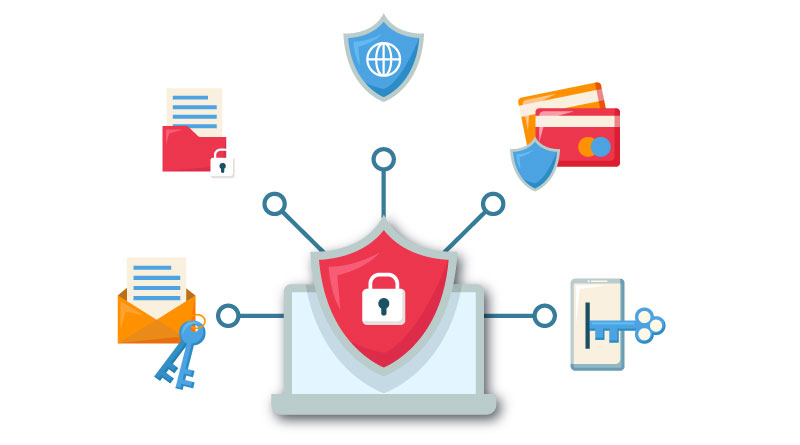
There is an increase in the wave of impersonating accounts and accusations. You can only take the steps and actions to cease the person who is impersonating you if you are miserable enough to become its victim.
Here are a few informative guidelines that you should be aware of:
- The person impersonating you must be someone who follows you. They need information from your personal life to impersonate you. Verify your friends and followers list and block, unfriend, or unfollow someone who is a stranger.
- Search the social media websites with your social media account name and see how many similar accounts you can find out. See if any of them are impersonating you.
- Take screenshots of the imposter account in case you found out and try to track down any unethical deeds done by the account, this will help you to handle the situation legally.
- Send out warnings to all your contacts and followers to keep your reputation intact if your account is compromised.
- Get business accounts or influencers’ accounts verified with the “blue tick”.
- Set the privacy settings of your account to prevent people from impersonating you.
Conclusion
You cannot irradiate the concept of impersonation. With law enforcement and social media policies becoming stricter and tougher, it is difficult to impersonate someone so easily. Many of the sites require identity proof before making an account with them. You have to be careful while putting your personal or professional information out there.

